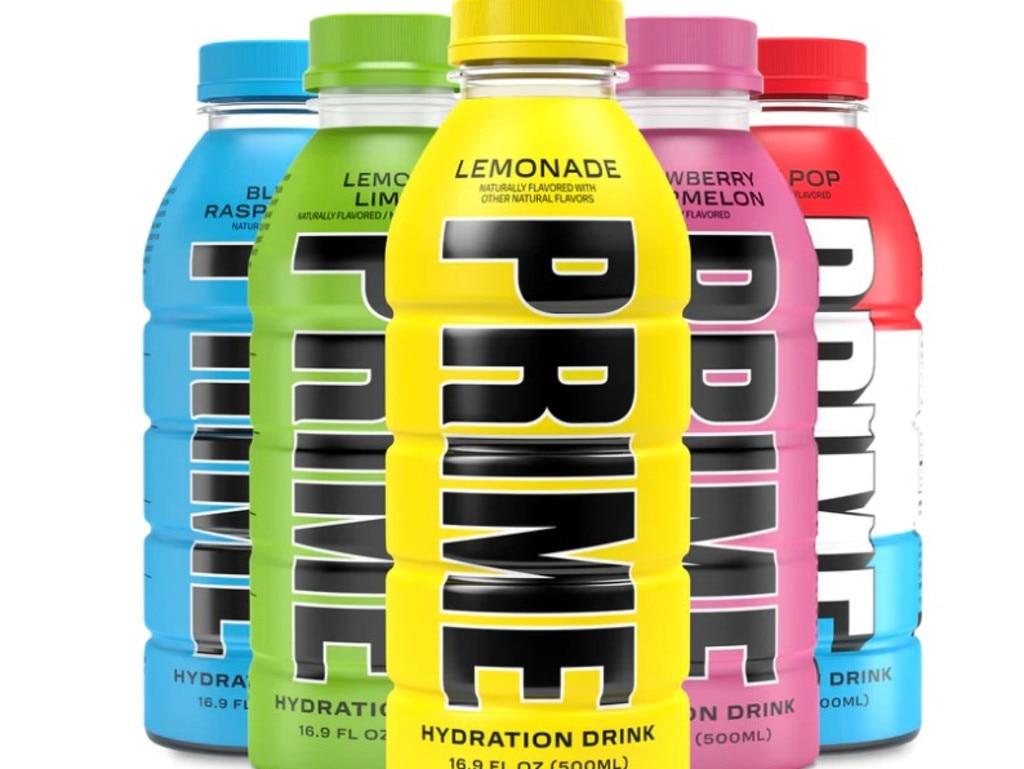Doctor’s warning over Logan Paul and KSI’s Prime Energy drink
Doctors are warning parents about the dangers of the popular energy drink created by controversial YouTuber Logan Paul.

A doctor has called out “black market” sales of an energy drink created by controversial YouTube star Logan Paul.
Paul, who describes himself an “artist, boxer and wrestler” and has more than 23 million subscribers on YouTube, announced his drink company partnership with KSI in January 2022.
Marketed as a sports drink, Prime Hydration has since become Premier League team Arsenal’s official drink, and is expected to feature heavily at UFC fighting events.
However, a variation of the drink, Prime Energy, which contains high levels of caffeine, has sparked concern among medical professionals.
Prime Energy isn’t widely available in stores, but local and international websites are allowing its sale Down Under.

According to Food Standards Australia New Zealand, energy drinks must contain no more than 32mg of caffeine per 100mL.
While Prime Hydration is caffeine free, Prime Energy contains 200mg of caffeine in a 350ml can, meaning it is roughly 57mg per 100ml.
Dr Nicole Higgins, who is the Royal Australian College of General Practitioners president, told The Daily Telegraph: “I understand that there is a flourishing black market for these drinks, especially among young people.
“My message to anyone thinking about trying a Prime Energy drink is to stay well clear of them. They are banned in Australia for a reason – that level of caffeine can be very dangerous.”

The Prime website warns the energy drink is not suitable to be consumed to those under 18 or pregnant or sensitive to caffeine.
A University of Adelaide study from 2016 found that drinking more than two energy drinks a day is associated with “adverse heart reactions” such as palpitations.
The paper, published in the International Journal of Cardiology, looked at patients aged between 13 and 40 who presented to a South Australian emergency department with heart palpitations.
It found that 70 per cent had consumed an energy drink.





